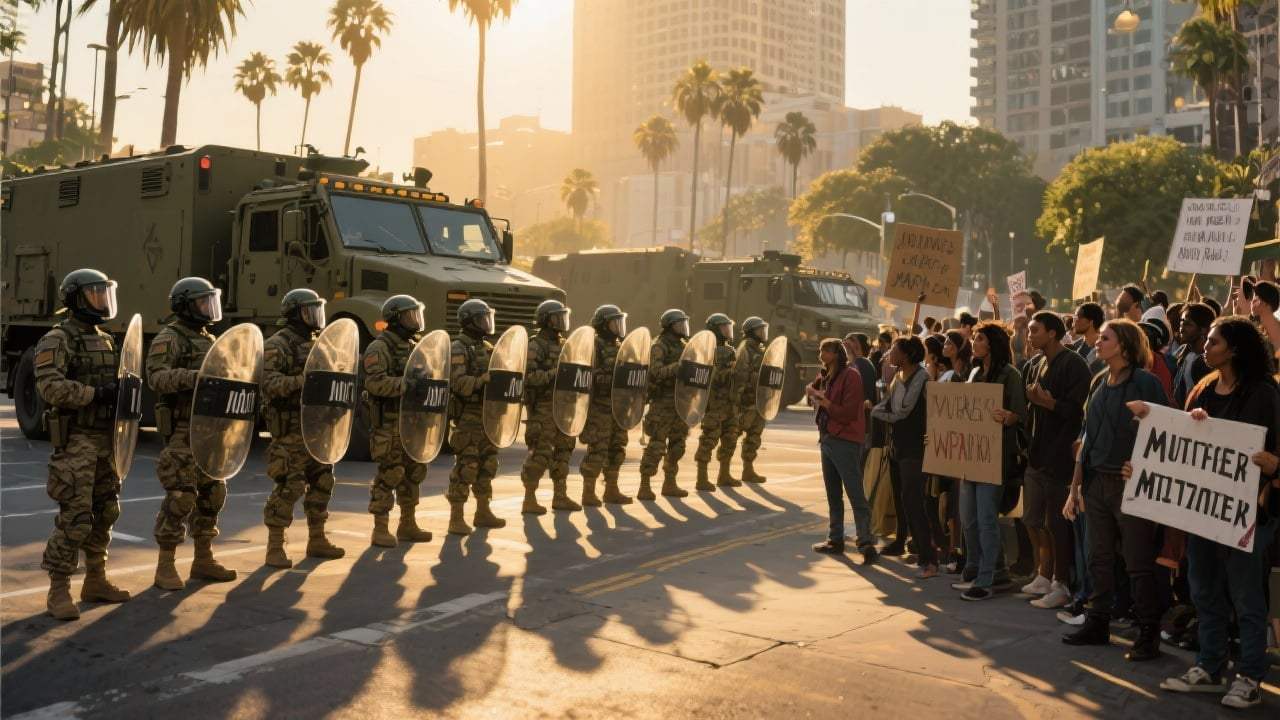
A federal judge has ruled that former President Donald Trump’s decision to deploy National Guard troops, alongside U.S. Marines, during Los Angeles immigration protests earlier this summer violated federal law.
The ruling, handed down by U.S. District Judge Charles Breyer in San Francisco, concluded that Trump’s actions breached the Posse Comitatus Act, the 19th-century statute that prohibits the use of the military for domestic law enforcement except under extraordinary circumstances.
Judge Breyer wrote that the Trump administration “willfully” ignored both the spirit and letter of the law, using troops for crowd control, traffic blockades, and riot suppression — all explicitly restricted by military doctrine. The ruling did not order an immediate withdrawal of federalized troops but set his injunction to take effect later in September, giving the administration time to appeal.
California’s Pushback and Political Fallout
The lawsuit was initiated by California leaders, including Governor Gavin Newsom, after Trump federalized the California National Guard over their objections. Newsom, seizing on the court victory, declared on X: “DONALD TRUMP LOSES AGAIN. The courts agree — his militarization of our streets and use of the military against US citizens is ILLEGAL”.
For California officials, the case was as much about state sovereignty as it was about federal overreach. The sight of armored troops patrolling MacArthur Park and riding in convoys through Los Angeles neighborhoods fueled comparisons to authoritarian crackdowns abroad.
What the Trump Team Argued
The Trump administration argued that the deployments were defensive, meant to protect federal agents during immigration enforcement operations rather than directly enforce laws. They claimed the President acted under constitutional authority to ensure federal functions could continue when “rebellion” or “danger of rebellion” existed. Breyer dismissed this defense, pointing to testimony from National Guard commanders who admitted they had expressed concerns over possible violations of the Posse Comitatus Act.
National Implications
The ruling could ripple far beyond California. Trump has openly considered similar deployments in Democratic-led cities such as Chicago, New York, and Baltimore. This judgment creates a significant legal precedent that narrows the executive branch’s room to maneuver in deploying military resources domestically.
Legal scholars suggest this case might eventually reach the Supreme Court, not only testing the boundaries of Posse Comitatus but also weighing on state-federal power dynamics. Still, the 9th Circuit Court of Appeals has already issued a temporary block on Breyer’s order, meaning the legal fight is far from over.
A Broader Conversation About Democracy
The ruling reignites a crucial debate: when does security cross into militarization, and who gets to decide? Trump’s aggressive use of armed forces in domestic contexts — from Washington, D.C., to Los Angeles — has reshaped how Americans imagine the role of the military at home. This case is less about the deployment of specific troops in Los Angeles than it is about the strain between presidential authority, state sovereignty, and individual freedom of protest.
Whether appealed or left standing, Judge Breyer’s ruling forces the country to reconsider old guardrails intended to prevent military rule from creeping into civilian life. In that sense, while the courtroom battle continues, the broader political and cultural battle is already underway.
